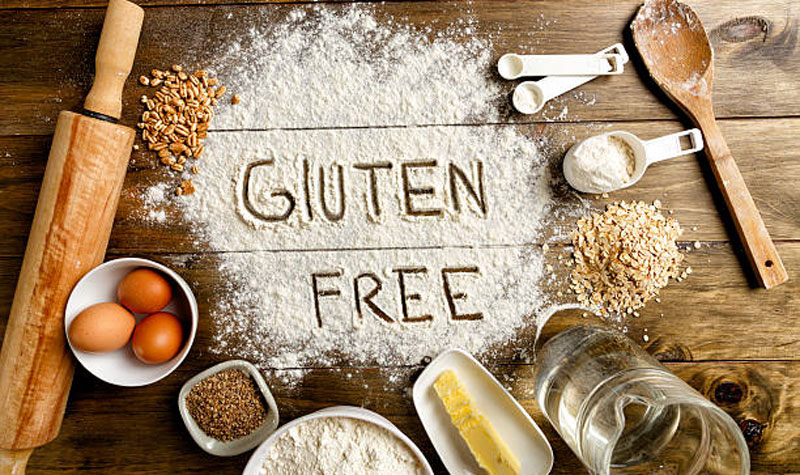
Hold up, what the heck is gluten?
As we’re looking at what is a gluten free diet, it’s probably a good idea that we look at what gluten is first. Gluten isn’t a made-up ingredient designed to help companies sell more gluten free products, nor is it an evil ingredient responsible for every health issue and dietary ailment the world has ever seen. According to Smilizer.com, Gluten is in fact a protein. That’s right, gluten is a protein found in cereal grains, including wheat. To be precise, it is a combination of two proteins found in these grains that gives them their elasticity. Gluten is found in a variety of foods, although it is primarily found in cereal grains such as: Wheat, Barley, Oats, and Rye.
What is a gluten free diet?
This shouldn’t come as much of a surprise to many of you, but a gluten free diet is a dietary plan that prohibits the consumption of gluten. Shock horror! We won’t waste too much time here because we’ve already covered the basics, but a gluten free diet basically means that those following the diet cannot consume any products which may contain gluten, or that could even have potentially been contaminated by gluten. People go gluten free for many reasons, although primarily, they do so because they suffer with gluten allergies and/or intolerances.
What are gluten allergies/intolerances?
Now we’re going to look at what gluten allergies and intolerances are. Basically, one of the main reasons why we’re looking at what is a gluten free diet in today’s guide, is because of the fact that so many people are going gluten free. A gluten allergy or intolerance means that the individual in question will suffer from health and digestive complications. Coeliac Disease is perhaps the most well-known form of gluten allergy. Those affected with this condition will find that, when they consume anything containing even a trace of gluten, their immune systems will react to the gluten and this will cause damage to the lining of their gut. This will cause all manner of symptoms including:
- Severe bloating
- Stomach cramps
- Gas
- Fatigue
- Diarrhoea
- Constipation
- Nausea
- Headache
- Stomach-ache
The only real cure for coeliac disease is prevention, and the only way to prevent these symptoms is to avoid gluten. This is why people suffering with these types of conditions much adopt a gluten free lifestyle and cut gluten out of their diets forever.
Which foods can be consumed?
We won’t be listing each and every single item of food that can be consumed on a gluten free diet because that would take us all day to write, and you all day to read. Any food containing gluten is off limits, so foods such as: cereal, bread, and pasta, are definite no-no’s. In terms of which foods you can eat on a gluten-free diet however, you can enjoy:
Gluten free diet tips
Now we’re going to finish this look at what is a gluten free diet by sharing a few useful tips with you to help you on your gluten free journey.
Always read the ingredients – If you’re new to the world of gluten free dieting, you need to get into the habit of reading the ingredients labels on every item you buy. This is because some foods may contain gluten without you realizing. Sausages or bacon for example, are primarily made from pork, but some recipes also include cereals such as wheat or oats. Most packaging nowadays with tell you whether their products are gluten free or not.
Use gluten-free alternatives – If you’ve been diagnosed with a gluten allergy or intolerance quite recently, you’ll find that it’s not all doom and gloom. The thought of living without bread can be quite daunting to some of you, but you’ll be pleased to learn that there are gluten free breads and flours that you can enjoy in place of those containing gluten. Nowadays you can enjoy delicacies such as: gluten free pasta, gluten free pizza, gluten free batter, gluten free bread, and much more.
Watch out for condiments – Before you sit down to enjoy your delicious gluten free meal for dinner, don’t be so quick to drown it in your usual condiments found in the kitchen cupboards. Some condiments contain ingredients which contain gluten, so again, read the label.
Find foods you enjoy – Transitioning over to a gluten free lifestyle can be difficult at first, which is why you need to find foods you enjoy. There are plenty of gluten free foods and meals that you can enjoy, which taste great and won’t upset your digestive health. Try some new recipes and see which ones you enjoy.
And with that, we’ll bring this guide on what is a gluten free diet to an end. Hopefully now you’ve realized that gluten free diets are not as bad as some people make out, and if you prepare properly and manage your condition, your quality of life will not be affected in the slightest. If anything, it will improve.
Comments
comments